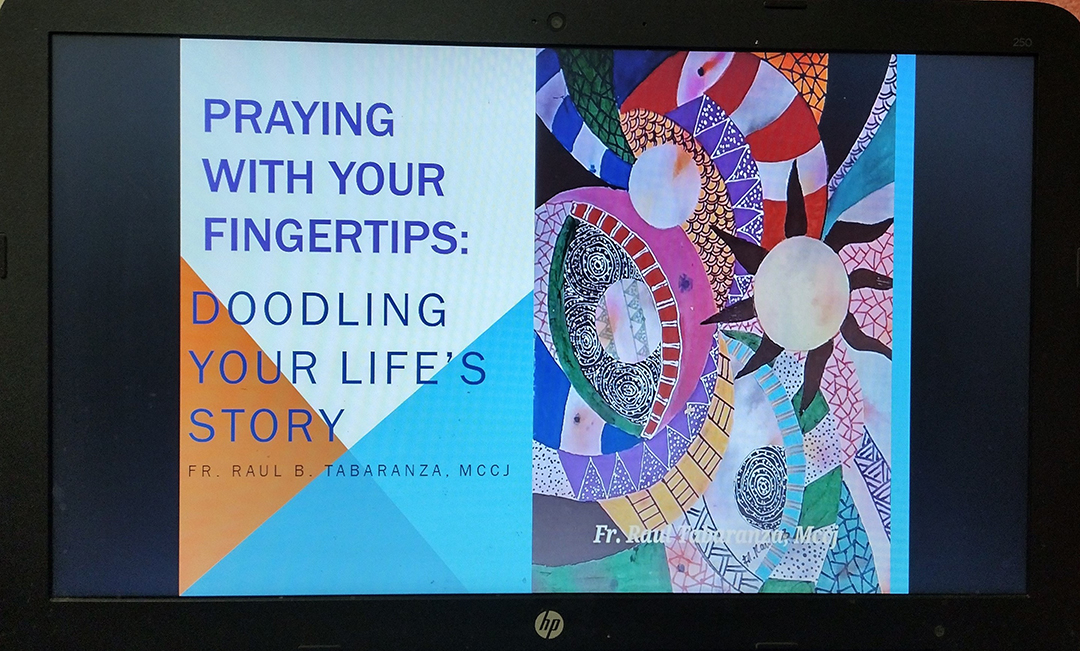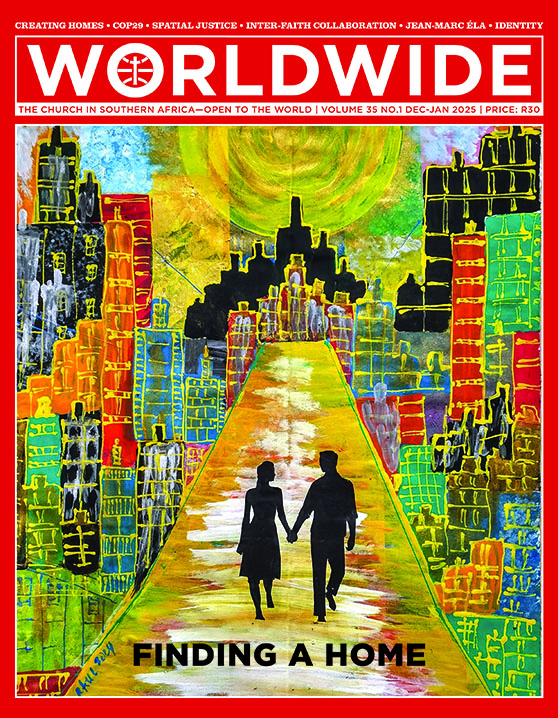
FINDING A HOME
This painting represents the reality of so many people in the world looking for a place to stay, especially as they flock into crowded modern cities, searching for jobs or fleeing from various situations of conflict. The need to create living spaces for them is acute. Like Joseph and Mary, who found no place at the inn, millions of people risk ending up unsheltered in the streets and deprived of a dignified dwelling which they can call home.
Painting by Fr Raul Tabaranza MCCJ
FRONTIERS • WELCOME AND INTEGRATION
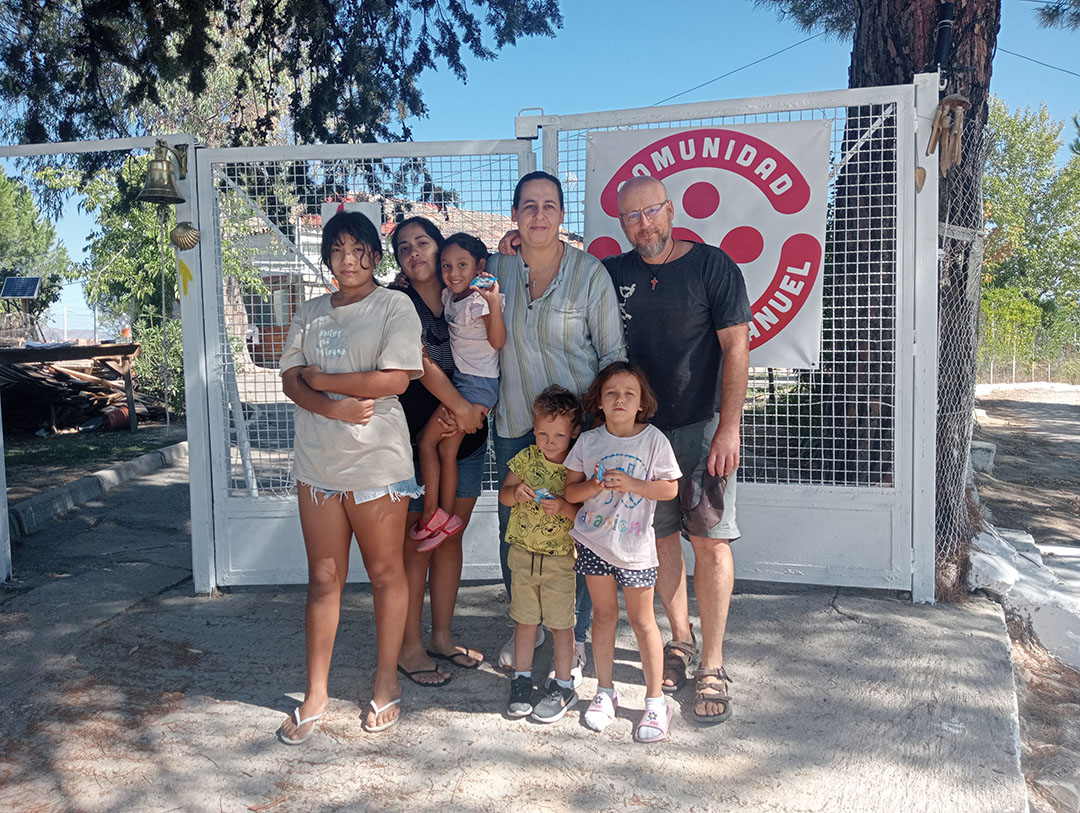
SEARCHING FOR A MORE JUST LIFE
Lola and Dani, a married couple of Catholic lay missionaries, both nurses by profession, spent six months in the Comboni missionary hospital of Saint Joseph de Bébèdjia in Chad, in 2011. Upon their return to Spain, they decided to open Mission Emmanuel, a home for immigrants. Apart from their seven children—aged between 4 and 16—it currently hosts another 16 residents from eight different nationalities, mainly African, and among them a baby.
BY DANIEL ALMAGRO | (CO-FOUNDER WITH LOLA DÍAZ OF MISSION EMMANUEL), TRES CANTOS, MADRID
WHEN WE talk about the reality of homelessness, we tend to resort to certain common clichés. Some think that homelessness is the result of addictions, mental illness or because the persons who suffer from them are unwilling or unable to work. Others argue that the cause is the lack of State social policies or deficient aid in access to housing. In reality, all these factors as well as many others give us an incomplete or only partial picture of the situation. They are merely shallow arguments coming from two different angles of rejection. On the one hand, the ‘negative’ view which accuses the individual of provoking his/her own state of precariousness, and on the other hand, a ‘positive’ approach which disassociates the person from his/her own situation, transforming them into victims, incapable of escaping from their condition, becoming passive recipients of aids from the State, NGOs, works of mercy, etc…. We end up classifying these people, dehumanising them and diminishing the extent to which their suffering affects us.
Addressing homelessness
Addressing this issue is not easy, because of the numerous contributing factors which intervene for a person to end up without a place to lay down his or her head, as it happened to Jesus of Nazareth. It is precisely from Him that the so-called solution emanates.
I am not referring to great or small works of institutions of mercy which exist and are needed, though they may merely offer partial relief from these situations. Unfortunately, some become authentic sustainers and promoters of poverty, of victimization or of an attitude of superiority, by means of a sense of condescension. Let us not forget how popular it has become to have one’s photo taken with the poor and how good one feels donating things to the poor. All these gestures are aimed at pacifying our consciences and boosting our egos.
The solution, as I have already mentioned, is to be found in Him, in Jesus, the Homeless One, in rooting ourselves in Him in order to be able to detach ourselves from everything else; in finding the Father who dwells deep within us, in our hidden centre, so that we can know Him in our daily lives. This transforms our lives into authentic answers to our brothers and sisters, answers which are in them as much as in us, and only through a mutual companionship does the solution become present, together in community.
Faith is not merely believing in heaven or hell, but daring to do what seems impossible, out of love.
However, those who choose to live in trust are few. Our society and even religion does not favour these attitudes. We are not, from an early age, invited to live in trust, to direct our lives towards going beyond our known possibilities. However, only those who do go beyond, when one can’t go any further, see the hand of God who intervenes when necessary, helping us to persevere in faith. Faith is not merely believing in heaven or hell, but daring to do what seems impossible, out of love. Then we can understand Jesus when he says: “For those who have (faith) will be given more, and those who have not will forfeit even what they have. “(Mk 4:25)
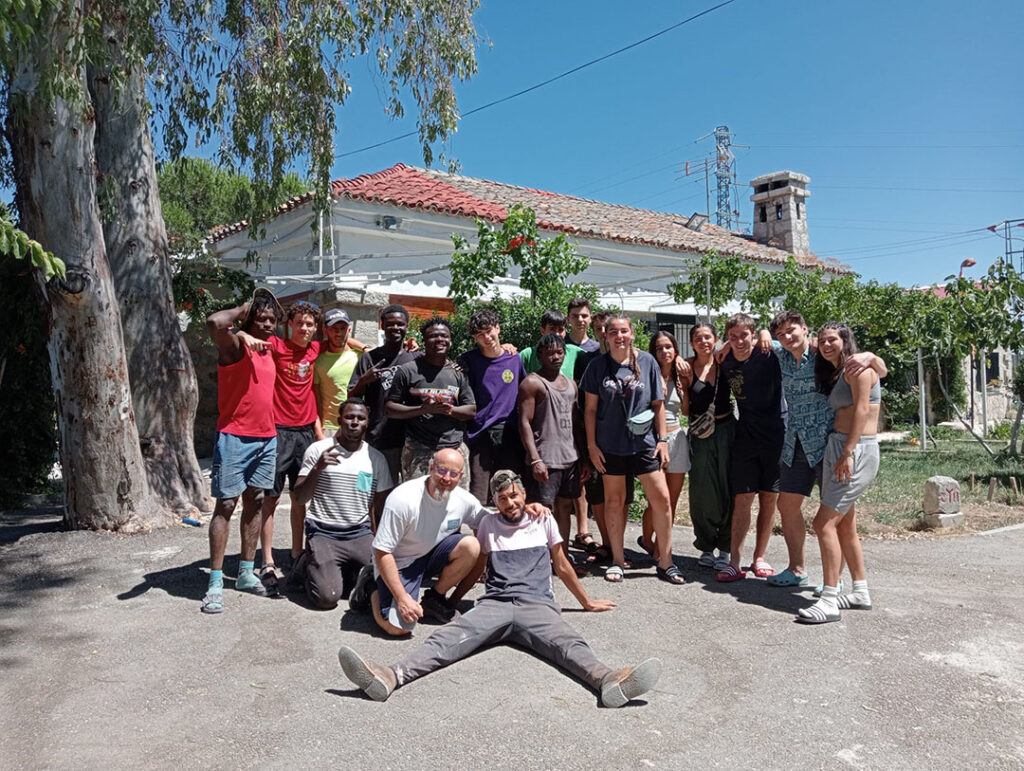
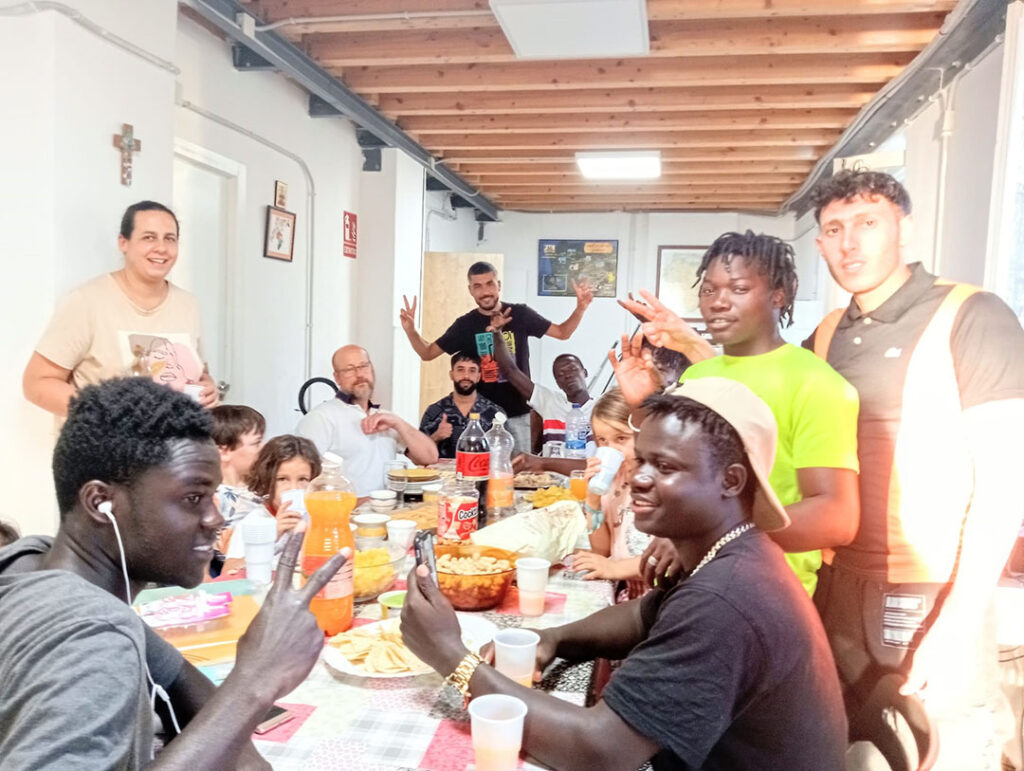
Welcoming: Part of our human identity
An affluent society regards the fact of ‘seeking a more just life for all’ as something extraordinary, only reserved for exceptional people. This kind of approach does not encourage us to participate in this search, but in fact justifies the opposite, setting this ideal of life only for the ‘crazy’ few, so that we do not need to consider it, nor do we agitate those who otherwise might feel questioned by it. The Gospel, instead, is offered to everyone who wishes to live it, from each one’s consecration, creating more just ways of life.
This consecration deserves great discernment which may lead us to a total surrender to God in our brothers and sisters, each one with his or her own gifts and none superior to the other, without teachers or gurus, but only as companions or references with more experience in trusting and persevering in the works of God. These references help us to clarify the path that God wants us to follow, which is always the same path that the believer sincerely wants for himself/ herself; not the one which society wants or seems to need. In this journey there is always a ‘leaving everything’, in order to ‘gain everything’.
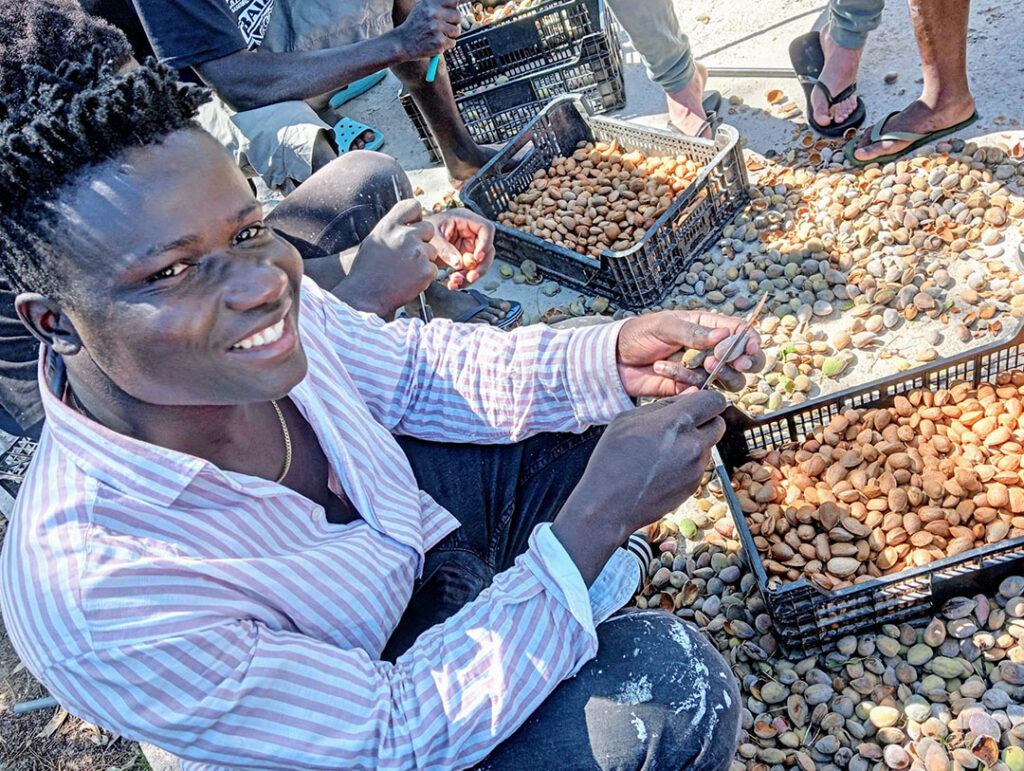
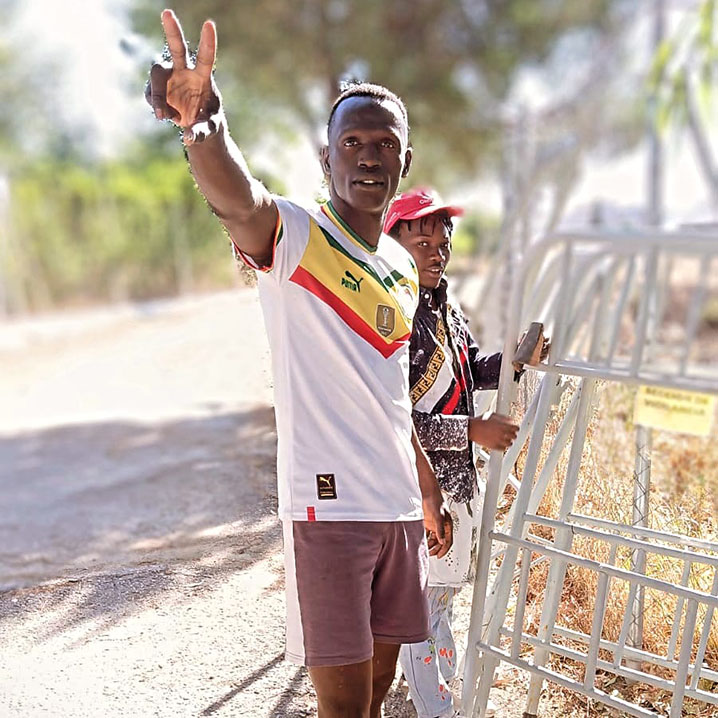
Mission Emmanuel is born
In our case we had to leave our home several times before founding Mission Emmanuel. The Community was born after years of discernment, first as members of OCASHA, a lay missionary association, then with the Comboni Missionaries, also as diocesan missionaries who went to France for formation. The experience in Chad was fundamental to understanding that without a change of being and lifestyle, it would be impossible to live justice in the world, since works of mercy often ended up in a misunderstood charity or in dependence on institutions. The Spirit was offering us a life in community which both gave response and encouraged the individual to become independent and to live in a more just way, as an expression of authentic mercy. We accompanied African immigrants in a parish for two years and participated in the African chaplaincy, where we got to know the reality of many young Africans who, after a hellish journey to reach Spain, were deserted on the streets. We asked God to enable us to welcome these people into a home. The Lord offered us a house in Tres Cantos through two priests and we said ‘Yes’.
We moved in, so as to live with the people we had welcomed, forming a community with them.
We began to welcome people and to supervise this welcoming, but soon we saw that the mission needed our physical presence. Two years later we moved in, so as to live with the people we had welcomed, forming a community with them. The decision was not easy, because when everything was ready for the step forward, I did not dare taking it, thinking: How can it be my children’s fault to have crazy parents who wish to live with homeless people? And the ‘Boss’, as I call God, had to intervene when I was not expecting it, and when I had almost given up the idea of living at the Mission. While I was taking care of a patient in my hospital, cannulating a venous vein, I suddenly felt and heard a voice that did not speak in any language, but which I could understand, saying to me, in a millisecond: Where have I failed you? Why don’t you trust me? I have given you everything you have asked for, but now you are backing out.
At that moment I knew that I had to go with my family to Mission Emanuel. I called my wife and told he: “We are moving to the Mission”’. My wife, who had always had more faith and been stronger than me, didn’t hesitate for a second.
Purpose
In the community of Mission Emmanuel, some stay because they have no other place to lay their heads, while others stay because of their vocation. Each one has different responsibilities and various degrees of involvement, but together we are one. Therein lies the real justice and response needed, for if we are all one, no one can abandon anyone.
Lola, my wife, is the mother of our seven natural children and of more than a hundred people who have been welcomed by our community; she is a missionary, a companion, a coordinator and, above all, a sister in the community. As a poor father of a large family, I myself, accompany these brothers and sisters both spiritually and in secular matters. They really give us life in abundance.
Our task is, above all, one of presence and listening, organisation and service together with volunteer friends who carry out essential tasks such as administrative and legal work and the management of the essential resources to sustain the mission. Some live with us for a while and some even consider settling in the facilities where almost 30 of us already live and share what we have and are.
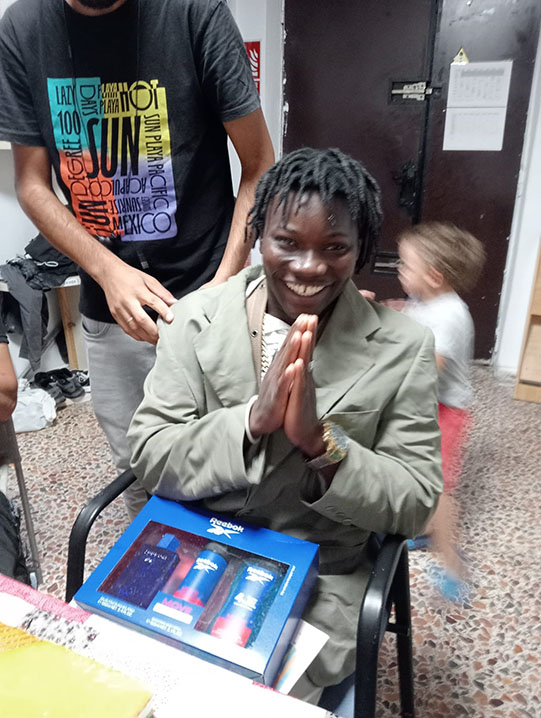
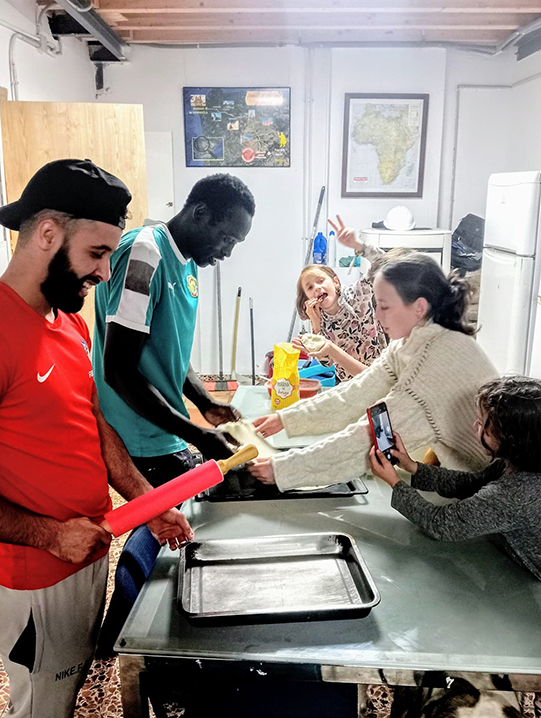
Daily rhythm
Our routine resembles that of any family. Everything is organised from very early in the morning so that all gets going. The permanent members of the community work outside and leave early; the guests leave for their training or work after having eaten the breakfast prepared by the kitchen team. This team is trained in cooking, and their main task is to prepare the menu designed by the coordinator. At 8 am they hand in their keys and leave at 9 am at the latest, except for those who are sick and women with children. From 2 pm, everyone returns to eat and rest. During the afternoon, cleaning and different activities are carried out, among them meetings of accompaniment, recreation and prayer, each one in their own religion. Christians meet for a community prayer based on Lectio Divina, silent contemplation and sharing of their experience in the community and of bread and wine.
Our routine resembles that of any family. Everything is organised from very early in the morning so that all gets going.
Supper is at 21h and silence at 23h. All this happens in a continuous flow of people coming and going, including some pilgrims of Jacob’s Way. We can accommodate and take care of up to six pilgrims in our Mission.
Over weekends we do community work from 10am to 2pm, where we can evaluate and develop work skills, which are key for the residents’ emancipation; through this work we intend that the people we welcome give back and return social contributions such as cleaning fields, reforestation, agricultural work and caring for people or animals.
Sometimes we organise community outings or meetings with different motives, among them to transmit the main message which is none other than the Good News that the Kingdom is possible here and now. The coming of the Kingdom does not depend on one’s country of birth, nor on its government, nor on any clerical or secular institution aimed at solving people’s ‘problems’. In fact, these are not really problems, but opportunities to take a step towards a fuller life, a gift of life which is like a candle that burns itself to give light and to end darkness wherever this is found.
Whenever one candle is kept burning it is capable of lighting others and creating warm spaces which foster love and justice. It offers that spark needed to illuminate so many lives in their darkness of ego, hopelessness and lack of faith, to help them become who they are meant to be and not mere characters in a novel called the world.

